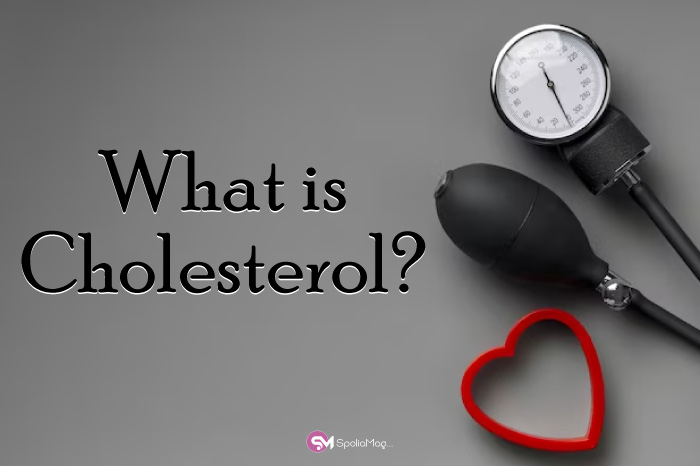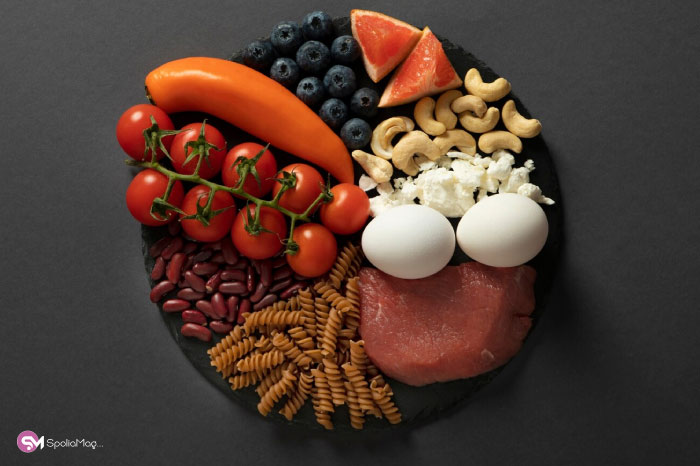Cholesterol, a waxy substance in your blood, is important in building healthy cells. However, high cholesterol levels can develop fatty deposits in your blood vessels, leading to heart diseases.
Given the significant impact of cholesterol on heart health, managing its levels becomes important. This is where a heart-healthy diet comes into play.
Consuming a diet rich in fruits, vegetables, whole grains, and lean proteins and devoid of saturated fats can help maintain a healthy cholesterol balance, thereby reducing the risk of heart disease.
To help you maintain a healthy heart, we will explore more about cholesterol and the foods we need to consume to lower cholesterol levels naturally.
What is Cholesterol?

Cholesterol is a lipid that plays numerous crucial roles in the body. It’s involved in the formation of cell membranes, the production of certain hormones, and the generation of vitamin D.
There are two types of cholesterol: High-Density Lipoprotein (HDL), known as ‘good’ cholesterol, and Low-Density Lipoprotein (LDL), often called ‘bad’ cholesterol.
LDL transports cholesterol particles throughout your body, leading to a buildup in the arteries if levels are too high. This can cause the arteries to become hard and narrow, reducing blood flow to the heart.
Many medications, like Fenofibrate, accelerate natural processes that remove bad cholesterol from the body. You can refer to online resources like Fenofibrate for Cholesterol: Important Information to learn more about this medication.
Conversely, HDL transports cholesterol from the cells back to the liver. Once in the liver, the cholesterol is either metabolized or excreted from the body. Having high levels of HDL is advantageous as it decreases the likelihood of developing heart disease.
Having high levels of LDL or low levels of HDL can lead to an increased risk of developing atherosclerosis, a condition where plaque builds up inside the arteries.
Additionally, high cholesterol levels can increase the risk of coronary artery disease, heart attack, and stroke. Therefore, maintaining a balance between LDL and HDL cholesterol is vital for overall heart health.
Foods That Lower Cholesterol Naturally

Diet plays a significant role in controlling cholesterol levels. Certain foods can increase your LDL, leading to a higher risk of heart disease, while others can lower it, promoting heart health.
To maintain healthy levels of cholesterol in the body, here are some foods you can include in your meal plan:
1. Fruits and Vegetables
These foods are not only delicious, but they are also rich in dietary fiber and antioxidants, which can help lower LDL cholesterol levels.
For example, berries like blueberries and strawberries contain antioxidants that protect against cell damage. Apples and pears are high in soluble fiber, which can help reduce cholesterol absorption.
Oranges are known for their high vitamin C content, and leafy green vegetables contain vitamins, minerals, and fiber.
Including these nutrient-dense foods in your diet can contribute to better heart health and overall well-being.
2. Whole Grains
Whole grains, such as oats, barley, brown rice, and whole-grain bread or pasta, are a fantastic addition to a healthy diet.
These nutrient-rich foods are packed with soluble fiber, which not only helps to reduce cholesterol absorption into your bloodstream but also promotes digestive health and helps to regulate blood sugar levels.
3. Legumes
Legumes, such as beans, lentils, and chickpeas, are a great source of soluble fiber and protein. They can help lower LDL cholesterol and improve overall heart health.
4. Omega-3 Fatty Acids
Foods high in omega-3 fatty acids can lower cholesterol levels and have heart-healthy benefits. Fatty fish like salmon, mackerel, and albacore tuna are rich sources. Flaxseeds and walnuts also contain these beneficial fats.
5. Nuts and Seeds
Almonds, walnuts, and flaxseeds are delicious and packed with dietary fiber. These superfoods are rich in heart-healthy fats, such as monounsaturated and polyunsaturated fats, which have been shown to help lower LDL cholesterol levels.
Adding them to your diet can contribute to better cardiovascular health and overall well-being.
6. Olive Oil
Olive oil is rich in monounsaturated fats that can reduce LDL cholesterol levels. Using it in place of saturated fats like butter can be a heart-healthy swap in your diet.
Practical Tips for Implementing a Heart-Healthy Diet
For a healthy diet, here are some tips that experts would recommend:
- Suggestions for Meal Planning and Preparation
Plan: Take time each week to plan your meals. This can help ensure you include a variety of heart-healthy foods in your diet.
Cook at Home: Preparing meals at home allows you to control the ingredients and portion sizes.
Use Healthy Cooking Methods: Opt for baking, grilling, or steaming instead of frying. These methods require less or no added fat.
Experiment with Herbs and Spices: They add flavor to your dishes and allow you to cut back on salt, which can contribute to high blood pressure.
- Tips for Making Healthier Food Choices When Dining Out
Check the Menu Before You Go: Many restaurants have online menus. Review it ahead of time to find the healthiest options.
Ask Questions: Don’t hesitate to ask how a dish is prepared or to request modifications, like dressing on the side or no added salt.
Watch Portion Sizes: Restaurant portions are often larger than necessary. Consider sharing a meal with someone or taking half home for later.
- Recommendations for Gradual Dietary Changes
Start Small: Make one change at a time, like adding an extra serving of vegetables to your dinner or replacing a sugary beverage with water.
Swap Gradually: Instead of eliminating foods you love, try swapping them for healthier alternatives. For example, use whole grain bread instead of white or olive oil instead of butter.
Be Consistent: It’s okay to occasionally indulge, but try to make healthy choices most of the time.
Final Thoughts
Changing your diet might seem daunting at first, but even small, gradual changes can make a big difference over time. Planning your meals, making smart choices when dining out, and slowly introducing healthier alternatives into your diet are practical ways to start.





